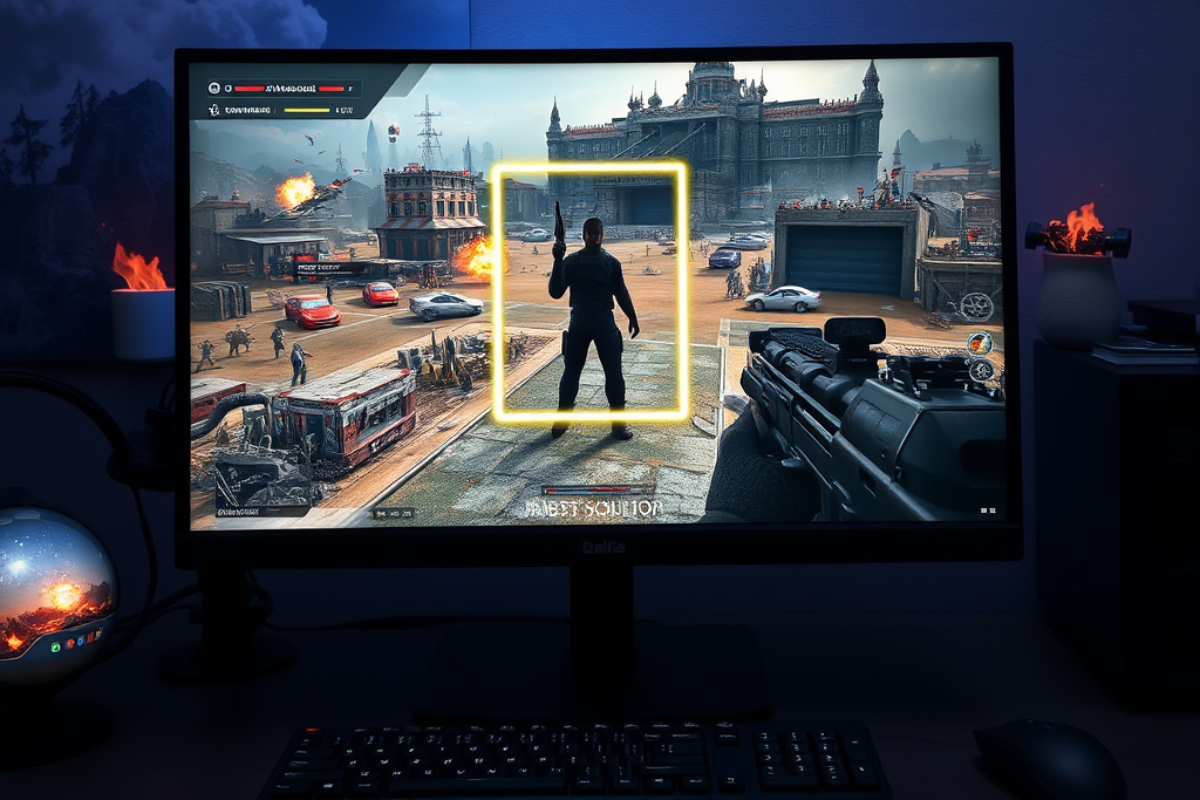Online games have opened new possibilities in the world of multiplayer gaming. From simple games with few players to large game worlds powered by modern technology, we have encountered a space where gaming is no longer limited to local areas. Online games have not only expanded the experience of players but have also provided a higher level of connection and interaction between people from various parts of the world.
A Glimpse Into the World of Online Multiplayer Gaming
The rise of online games has not only changed the way we play but also the overall experience for players. In this article, we will discuss how online games have transformed multiplayer gaming, from the technology and infrastructure supporting fast internet and server systems to new and more complex gameplay mechanics. We will also explore the formation of global gaming communities, challenges like lag and toxicity, and how game developers continue to push for innovation to enhance the gaming experience.
What is Multiplayer Gaming?
Multiplayer gaming refers to video games that allow multiple players to interact with each other within the same game environment, either cooperatively or competitively. Unlike single-player games, where the player faces challenges and objectives alone, multiplayer games are designed to connect players, enabling them to play together or against each other. This can happen in various ways, such as via local area networks (LAN), the internet, or even on the same device.
Multiplayer gaming can be classified into different types:
Local Multiplayer: Players are in the same physical location, playing together on the same console, computer, or screen. Classic examples include games like Mario Kart or Street Fighter where friends or family members play side by side.
Online Multiplayer: This is where players connect over the internet to play with or against others around the world. Online multiplayer games can support vast numbers of players and are often the backbone of modern gaming. Games like Fortnite, League of Legends, and Call of Duty fall under this category.
Cooperative Multiplayer: In these games, players work together to achieve a common goal or complete challenges. This can be seen in games like Left 4 Dead or Overcooked, where teamwork is essential to success.
Competitive Multiplayer: Players compete against each other, either in one-on-one matches or in large, team-based battles. Games like Apex Legends and Counter-Strike: Global Offensive are great examples where individual skill and strategy play a key role.
The rise of multiplayer gaming has significantly altered the way we play video games, creating virtual communities and providing players with the ability to form friendships, compete at high levels, or simply have fun with others, no matter the distance. Online multiplayer gaming has become a social experience, connecting millions of people globally in ways that were previously unimaginable.
What is Low Connectivity in Multiplayer Gaming?
In the era of LAN parties and computer-based games, multiplayer gaming often requires a physical connection between players. In the early years, games were limited to local networks, which often caused delays and poor gaming experiences. However, the emergence of online games has opened the door to a vibrant world of multiplayer gaming. Players no longer have to work together from the same room or city to join forces in a game. Instead, players can now meet in a virtual world, regardless of where they are located.
Changes in Technology and Internet Infrastructure
One of the most important aspects of online games is the rapid development of the internet and technology. Initially, games struggled with connection delays (lag) and poor service quality. But over time, improvements in servers, cloud computing, and internet speeds have provided a more stable and vibrant multiplayer gaming experience.
With large servers and fast internet connections, online games have become more dynamic and robust. Games like “Fortnite” and “League of Legends” are great examples. These games have millions of active players coming together in a virtual world, supported by stable and fast servers.
Mobile gaming is another aspect of online games that has introduced a new dimension to multiplayer gaming. With the help of mobile internet, it has become easier to play multiplayer games anywhere and anytime. There’s no longer a need for a PC or gaming console—just a smartphone, and players can connect with friends or acquaintances.
Shaping More Complex Games and Gameplay Mechanics
In modern times, online games are not just simple games; they feature complex mechanics that lead to large worlds and more activities. Each game has its dynamics and systems, which are not only engaging but also provide greater value for players.
For example, in games like “World of Warcraft,” there are vast open worlds where players can explore, complete quests, and meet other players in real-time. Games like these provide higher levels of teamwork and coordination. Players must join forces to succeed in challenges and missions. These games also feature dynamic economies, where in-game markets mirror real-life aspects.
It’s not just about bringing players together; it’s about enhancing gameplay. Online games like “Apex Legends” and “Overwatch” showcase more advanced mechanics, including character special abilities and strategies that cannot be found in offline games. Multiplayer gaming is no longer just a simple game—it’s a collective test of skill and teamwork.
Building Global Gaming Communities
Online games have not only helped expand the gaming world; they’ve also improved the social aspect of gaming. In these games, players no longer have to play alone. In multiplayer games, players can team up with others from all over the world. Online games provide a platform where people, regardless of race, religion, or language, can come together and interact.
For example, a player from the Philippines can play with someone from the United States, and through their interaction in the game, they can form new friendships. The presence of online communities within games has paved the way for global unity in the gaming world.
eSports is another example of how multiplayer gaming has evolved. Online game competitions have become a global phenomenon, offering players the chance to earn money and recognition worldwide. Tournaments like “The International” for “Dota 2” showcase top-tier players battling for huge prizes and prestige.
Challenges in Online Multiplayer Gaming
However, online games and multiplayer gaming are not without their flaws. Along with their success, some challenges and issues still need to be addressed. One of these is lag and connection delays. Sometimes, slow internet or distant servers can disrupt the gaming experience. Anti-cheat systems are also a vital part of online games to maintain the integrity of the gameplay.
Toxicity or poor behavior from players is another issue facing online gaming communities. Bullying other players, harassment, and other forms of negative conduct can affect the enjoyment of others. As a result, game developers are continuously pushing forward with measures to maintain a positive and enjoyable community.
Looking Forward to the Future of Multiplayer Gaming
Multiplayer gaming continues to evolve, and more possibilities are opening up for players. As online games become more complex and immersive, there are expected changes on the horizon, such as the use of virtual reality (VR) and augmented reality (AR) to make the gaming experience even more colorful and interactive. Developers are working hard to improve aspects of online gaming, such as performance, security, and community, to further enhance the player experience.
There is no doubt that online games and multiplayer gaming will continue to be an essential part of digital culture. As the online gaming industry continues to grow, it is anticipated that future generations of games will deliver higher-quality gameplay and experiences for players.
Online games are not just a pastime; they are a way to build connections, improve skills, and strengthen communities worldwide. With each new game and technology introduced, online games continue to push forward a more diverse and dynamic multiplayer gaming experience.
Looking Ahead to the Future of Multiplayer Gaming
As technology continues to advance, online games and multiplayer gaming will continue to open up more possibilities for players. With each change, games are becoming faster, more interactive, and more inclusive, enabling players from different parts of the world to succeed.
Although challenges like lag and toxicity remain, these issues are being addressed by developers, and it’s expected that the experience for each player will become more vibrant and lighter in the future. The gaming industry continues to grow, and in the coming years, more changes will shape multiplayer gaming to new heights.



